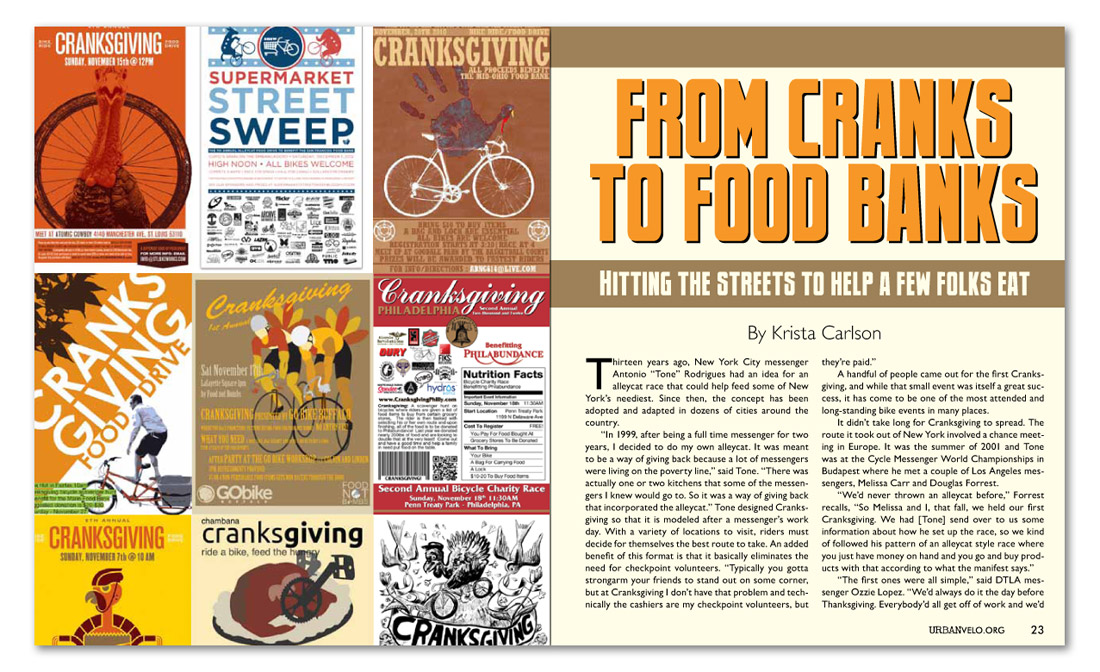


From Cranks to Food Banks
Krista Carlson
Thirteen years ago, New York City messenger Antonio “Tone” Rodrigues had an idea for an alleycat race that could help feed some of New York’s neediest. Since then, the concept has been adopted and adapted in dozens of cities around the country.
“In 1999, after being a full time messenger for two years, I decided to do my own alleycat. It was meant to be a way of giving back because a lot of messengers were living on the poverty line,” said Tone. “There was actually one or two kitchens that some of the messengers I knew would go to. So it was a way of giving back that incorporated the alleycat.” Tone designed Cranksgiving so that it is modeled after a messenger’s work day. With a variety of locations to visit, riders must decide for themselves the best route to take. An added benefit of this format is that it basically eliminates the need for checkpoint volunteers. “Typically you gotta strongarm your friends to stand out on some corner, but at Cranksgiving I don’t have that problem and technically the cashiers are my checkpoint volunteers, but they’re paid.”
A handful of people came out for the first Cranksgiving, and while that small event was itself a great success, it has come to be one of the most attended and long-standing bike events in many places.
It didn’t take long for Cranksgiving to spread. The route it took out of New York involved a chance meeting in Europe. It was the summer of 2001 and Tone was at the Cycle Messenger World Championships in Budapest where he met a couple of Los Angeles messengers, Melissa Carr and Douglas Forrest.
“We’d never thrown an alleycat before,” Forrest recalls, “So Melissa and I, that fall, we held our first Cranksgiving. We had [Tone] send over to us some information about how he set up the race, so we kind of followed his pattern of an alleycat style race where you just have money on hand and you go and buy products with that according to what the manifest says.”
“The first ones were all simple,” said DTLA messenger Ozzie Lopez. “We’d always do it the day before Thanksgiving. Everybody’d all get off of work and we’d